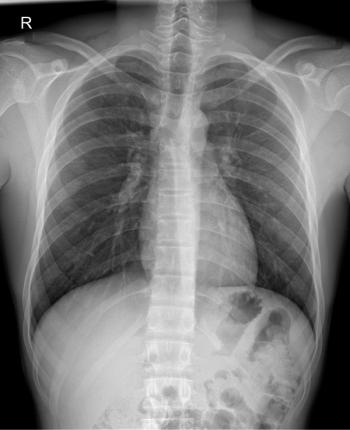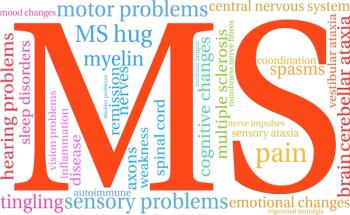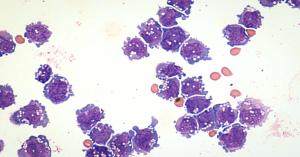
Quality-of-life (QOL) outcomes vary widely for patients receiving first-line treatment for chronic lymphocytic leukemia (CLL), according to research presented at the 2024 American Society of Hematology (ASH) meeting.

Quality-of-life (QOL) outcomes vary widely for patients receiving first-line treatment for chronic lymphocytic leukemia (CLL), according to research presented at the 2024 American Society of Hematology (ASH) meeting.

Finding similar frequencies of positive acetylcholine receptor antibodies in patients with ocular and generalized myasthenia gravis (MG), a Danish research team posits that ocular disease is most likely a more moderate form of generalized MG—not a fully separate condition.

A Yale School of Medicine team has created lists of criteria to help clinicians determine when next-generation sequencing (NGS) is appropriate for a patient with a myeloid neoplasm (MN), and when it is not.

Many roadblocks exist to detecting and assessing pulmonary hypertension (PH) in patients with interstitial lung disease (ILD), but creative thinking and artificial intelligence (AI) may soon help improve the landscape.

This multiyear follow-up of more than 3300 patients with relapsed/refractory chronic lymphocytic leukemia (R/R CLL) who received ibrutinib—the longest study of its kind—confirms the agent’s efficacy as a salvage treatment but reveals new information about its impact in different subpopulations with varying clinical characteristics.

For patients with chronic lymphocytic leukemia (CLL) treated previously with venetoclax and Bruton’s tyrosine kinase inhibitors, many more trials are needed to pinpoint the best next steps

Professional guidelines say that when pulmonary arterial hypertension (PAH) is diagnosed, right heart catheterization should be performed, but a quarter of the time, it isn’t—so investigators set out to discover why.

New and in-the-pipeline Janus kinase (JAK) inhibitors have the potential to make huge differences in the lives of patients with this psychologically distressing autoimmune disease.

The complex relationship between possibly impaired cognitive function in patients with multiple sclerosis (MS) and fasting blood sugar, fasting insulin, and insulin sensitivity levels is the focus of new work that advances understanding of intricate biological connections.

Three proteins—THRAP3, STMN1, and GNA13—are overrepresented in blood cancers like acute myeloid leukemia (AML) and could prove to be novel targets for future therapies.

Although Bruton tyrosine kinase (BTK) inhibitor monotherapy in chronic lymphocytic leukemia (CLL) has been a game-changer, patients have significantly increased risks of infection, especially in the upper respiratory tract.

Novel evidence has emerged from a 16-year study that hidradenitis suppurativa can elevate risks of not only pregnancy and postpartum complications, but of morbidity—particularly metabolic- and immunology-related morbidity—for mother and child in the long term.

A new analysis of real-world data show that just as in solid tumors, higher tumor mutational burden (TMB) and PD-L1 expression in blood cancers are linked to less-optimistic prognoses.

When resistance to or failure of hypomethylating agents (HMAs) occurs in acute myeloid leukemia (AML), depleting a ligase called TOPORS may help.

By attending multiple sclerosis (MS) support group meetings, getting to know members, and sharing their drug-company–sponsored meals, an author delves into the group’s culture and determination to resist being pigeonholed.

Using Mendelian randomization analysis, researchers found evidence that 2 small groups of immunophenotypes are linked to either greater or lesser odds of developing pulmonary arterial hypertension (PAH).

As more researchers utilize digital technology to measure mobility in pulmonary arterial hypertension (PAH), a team calls for consistent protocols to make outcomes as meaningful as possible to patients and clinicians

Several years of preliminary research results suggest chimeric antigen receptor (CAR) T-cell therapy could benefit pediatric patients with refractory systemic lupus erythematosus (SLE).

A single-center cohort study found no differences between males and females in the odds of starting or time to treatment in generalized myasthenia gravis (gMG), but investigators want to continue to probe more deeply into why women are more severely affected by the disease.

When women with obstructive sleep apnea (OSA) carrying high-risk pregnancies collaborate with their health care providers to find the best individualized continuous positive airway pressure (CPAP) treatment, their risks of gestational hypertension and preeclampsia may drop appreciably

The gene therapy landscape has changed dramatically in the past 5 years, and investigators wanted to capture and analyze the details of current and upcoming trials, along with their potential impact on patients.

Authors acknowledge that both the 2022 World Health Organization and International Consensus Classification myelodysplastic syndrome criteria sets have value, while sorting out their similarities and differences.

More and more hematology factors and parameters can be analyzed with advanced equipment to better pinpoint which patients might have myelodysplastic syndromes (MDS)—but the differences in leading makers’ systems can be tricky to maneuver.

Researchers believe that in their revised 4-factor model to predict patient outcomes in chronic lymphocytic leukemia (CLL), CD49d tops lactate dehydrogenase.

Researchers don’t fully understand why these disorders are increasing, but they declare that finding out should be a top priority.

This systematic review focusing on the targeted therapy era found solid associations between measurable residual disease (MRD) and clinical outcomes in patients with chronic lymphocytic leukemia.

When the mercury outside ascends too high early in pregnancy, the risk of pediatric acute lymphoblastic leukemia may rise as well; results also show greater impacts on Latino populations.

The social determinants of health (SDOH) that need to be tackled most urgently when it comes to which patients with large B-cell lymphoma (LBCL) do and do not receive chimeric antigen receptor T-cell therapy (CAR T) are age, sex, income, and race/ethnicity.

Investigators hoped to use large-scale proteomics to help predict hypertensive disorders of pregnancy (HDP), using blood proteins obtained from individuals in their first trimester of pregnancy—but success has been elusive.

A case study describes the disparate factors that played into the chemotherapy and other treatment decisions made by a team in Japan when addressing their patient’s primary mediastinal large B-cell lymphoma (PMBCL).

Published: June 17th 2024 | Updated:

Published: July 1st 2024 | Updated:

Published: May 10th 2024 | Updated:

259 Prospect Plains Rd, Bldg H
Cranbury, NJ 08512
© 2025 MJH Life Sciences®
All rights reserved.
